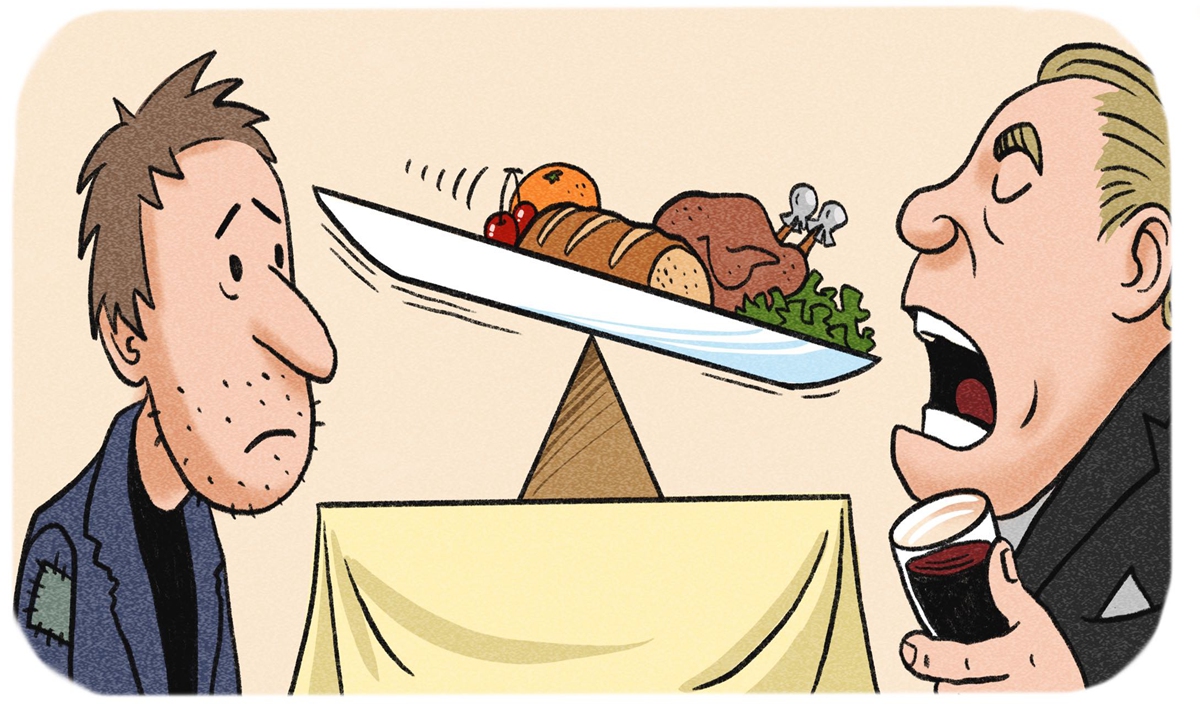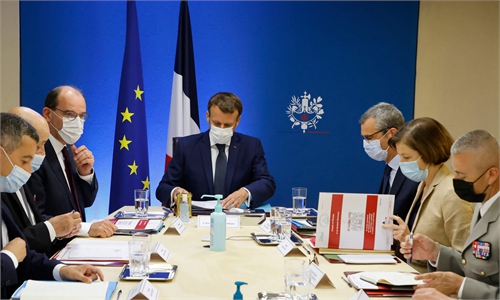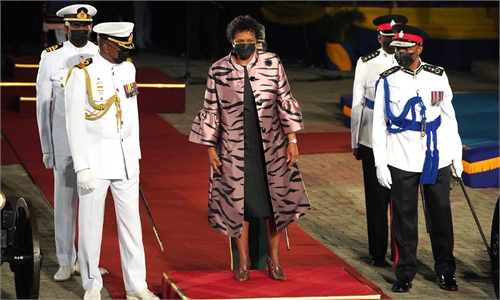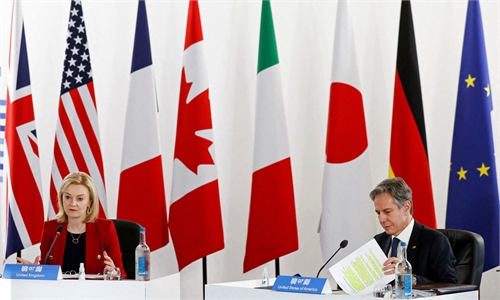
Illustration: Liu Rui/GT
Since Chinese President Xi Jinping took office in 2012, he has led the country to strive to achieve the goal of lifting 100 million Chinese people out of poverty.Last year, he declared this ambitious goal had been achieved, and while there can be some dispute over the precise method used to calculate levels of poverty and therefore the number of people lifted from it, there can be no doubt that China has achieved a spectacular feat.
About two-thirds of China's population lived beneath the internationally-acknowledged poverty line in the 1990s, about 750 million people. According to the World Bank, this had been decimated by 2016 to 7.2 million, or half a percent of the population. However you do the calculation, this is an impressive achievement.
But what is even more impressive is that a decade ago President Xi and the Chinese nation set out to raise the living standards of millions of Chinese citizens.
Contrast this to Britain, where the current cost of living is driving many ordinary people - who perhaps may never have known hunger or the shortage of basic necessities - to despair and destitution.
Inflation has soared above 7 percent, the highest for 40 years, far ahead of wage and pension rises, energy bills are rocketing by 54 percent, petrol is up 39 percent, taxes are at levels not seen for 70 years. The respected Joseph Rowntree Foundation (JRF), a charity which works to counter poverty and hardship, has predicted the catastrophic Spring Statement from Chancellor Rishi Sunak will drive another 600,000 people into poverty. No wonder some are calling this month "awful April."
This is happening not in a nation crippled by a lack of resources. By gross domestic product, the United Kingdom has significant wealth -- perhaps the fifth or sixth most powerful economy in the world. Yet it is a country where 14.5 million people are officially recognized as living in poverty, unable to eat properly, or feed their children unless they forgo other expenditures such as heating their homes. There are about 2,000 food banks scattered across the UK - perhaps more, if the efforts of independent community groups like schools and hospitals are included - which distribute food, clothes and toiletries to those who cannot afford to buy on their own. Some food bank clients are people who have jobs, like nurses, but are not paid enough; some refuse fresh vegetables because they cannot afford the energy to cook them. The Trussell Trust, which runs a network of food banks, says it is handing out at least three emergency food parcels every minute of every day.
This is all happening at a time when the wealth gap is increasing in Britain. Inequality is getting worse.
With people near breaking point, one consumer champion and financial expert, broadcaster Martin Lewis, told the right-wing newspaper The Daily Telegraph, that he feared desperation could lead to riots on Britain's streets.
"For people towards the bottom end, there's nothing to cut back on. It is not an exaggeration to say that there are people we have to prevent freezing or starving," he said.
"We need to keep people fed. We need to keep them warm. If we get this wrong right now, then we get to the point where we start to risk civil unrest. When breadwinners cannot provide, anger brews and civil unrest brews - and I do not think we are very far off."
Fortunately, Britain has not yet seen riots, but only weeks ago thousands of people demonstrated simultaneously in cities across the UK against the rising cost of living, demanding that the complacent Tory government should do more to help with measures such as freezing bills, boosting benefits or even giving £1,000 to every household for fuel and food bills. At one of these events outside Downing Street, former Labour Party leader Jeremy Corbyn addressed the crowd, later telling the press agency PA News that the government is "out of touch" with ordinary people.
"I'm meeting people who are terrified of the next bill," he said. "I was in a food bank this morning talking to people there that don't want food that they have to cook, because they can't afford to turn the gas and electricity on to cook it. This is the 21st century and we're the fifth richest country in the world - it's simply wrong and the government must intervene."
But the man at the head of the nation's Treasury, Rishi Sunak, seems to be utterly out of touch with ordinary people. His most significant contribution toward easing people's anxieties so far has been to announce a £200 loan toward bills - which will have to be paid back.
This comes from a man who is a multi-millionaire and who has recently installed a swimming pool at a historic country mansion he owns and which will cost an estimated £13,000 to heat over a year. That, according to the Sunday People newspaper, is six-and-a-half times the average annual heating bill for an entire family home. It was recently revealed that even while chancellor Sunak held a Green Card allowing him to declare the US as his main place of residence, and his wife - said to be richer than the Queen - paid no taxes in the UK.
This is indicative of how remote Britain's leaders are from its people, and of how deeply unequal it has become, with 22 percent of the population living in poverty. Almost a third of children, 31 percent, and almost a fifth of pensioners, live in poverty, the highest in at least a decade. And while lower wage levels have stagnated, the wealthier in Britain have continued to prosper, making it the country with the highest levels of income inequality in the developed world. Last May, the Office for National Statistics reported the richest fifth of Britain's households earned 12 times what the poorest fifth made.
It is hard to escape the conclusion that poverty and inequality are soaring because the government simply does not care about the citizens it is supposed to care for. Britain was already a deeply unequal society following more than a decade of punitive and unnecessary Tory austerity policies, which hit the poorest the hardest. Now, the poorest cannot afford to eat. We are living through Britain's own Hunger Games, which - like the dystopian television blockbuster - witnesses an uncaring government with little regard for the poorest in the land, where something as basic to life as food has become a symbol of inequality.
The author is a journalist and lecturer living in Britain. opinion@globaltimes.com.cn



